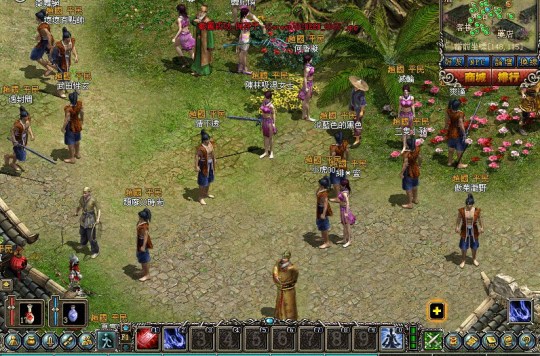Source: http://sce.sagepub.com/content/current
This issue of SCE journal has some excellent contributions. See Below with my comments. 這期基督教倫理學期刊(2012年五月號)太讚了,內容幾乎全是圍繞著當前的劍橋後自由學派展開,值得導介一番。
Christian Public Reasoning in the United Kingdom: Apologetic, Casuistical, and Rhetorically Discriminate
- Nigel Biggar, Christ Church, Oxford OX1 1DP, UK Email:nigel.biggar@chch.ox.ac.uk
Abstract
Since the 1960s Christian ethics in Britain has become stronger, more theological, and more Protestant, so that its moral intelligence is now much more fully informed by the full range of theological premises. In the future, however, Christian ethics needs to make up certain recent losses: to re-engage with moral philosophy, in order to rebut the glib dismissal of religious ethics by popularising atheists; to read less philosophy and more history, in order to become plausible to public policy-makers; and to revive the model of interdisciplinary work, in order both to understand the matter which it would interpret morally and to inject Christian analyses and judgements into the bloodstream of public discourse.
- 對當代英語學界神學思想史和倫理學研究具有先知開創地位的 Biggar 為本期提供了一個宏觀的開場和學術掌故。這是本領域舊雨新知必讀的一篇論文。
Reasoning from out of Particularity: Possibilities for Conversation in Theological Ethics*
- Daniel H. Weiss, Faculty of Divinity, University of Cambridge, West Road, Cambridge CB3 9BS, UK Email: dhw27@cam.ac.uk
Abstract
Frequently, theological particularity can hinder attempts at inter-religious conversations in theological ethics, as each tradition’s reasoning is inextricably bound up with core doctrinal elements not shared by other traditions. I argue, however, that elements of particularity can facilitate conversation when emphasis is placed on movements of ethical reasoning between particular statements within each tradition. By examining the classical rabbinic practice of verbal forewarning in capital cases, I show that although the starting point and ending point of an instance of theological reasoning may be ‘exclusivistic’, the relationship between those points can serve as the basis for comparison and dialogue.
- 寫這篇的 Weiss 就是他家大老 David Ford 的打手。根本論述是 Scriptural reasoning 的那一套而沒有突破。這篇論文的貢獻在於掃盲,而對英倫系統的後自由神學的進展沒有幫助。
Evolutionary Theory and Theological Ethics
- John Hare, Yale Divinity School, 409 Prospect Street, New Haven, Connecticut 06511, USA Email: john.hare@yale.edu
Abstract
This paper is about the problematic interface between evolutionary scientists’ talk about ethics and current work in philosophy and theology. The paper proceeds by taking four main figures from four different disciplines. The four disciplines are neurophysiology, cognitive psychology, primatology and game theory, and the four figures are Joshua Greene, Mark Hauser, Frans de Waal and Ken Binmore. The paper relates the views of each of these figures to recent work in philosophical and theological ethics.
- Hare 提供的是當前很重要的一塊拼圖,意即從哲學上主流的無神論自然哲學系統(偏唯物論的實用主義)來協調神學倫理學的地位。畢竟沒有這一塊,神學就不可能在哲學邏輯上完全沿展開而成為在學術和社會上都站得住腳的公共神學,而難免只是信徒自己抱殘守缺的吶喊。
Response to John Hare
- Sarah Coakley, Norris-Hulse Professor of Divinity, Faculty of Divinity, University of Cambridge, West Road, Cambridge, CB3 9BS, UK Email: sc545@cam.ac.uk
Abstract
John Hare’s paper successfully exposes philosophical naïvéties and reductive pretensions in the evolutionary research he surveys. But he fails to clarify how ‘God’, on a view such as Dominic Johnson’s, could not be seen merely as a dispensable projection of ‘primitive’ societies, and thus how his own continuing commitment to a Kantian ethic might need to be bolstered by a concomitant form of ‘natural theology’ attentive to evolutionary dynamics.
- 目前在公共神學上,將哲學沿展到極限的成果,將能得到一種有神論,也就是Kant 自然神論、實踐理性,和神導進化論的三點一線。可是Coakley 在這指出,這個工程在純哲學上還做得不到位(至少在Hare所整理出的四大論述中是如此)。因著 Coakley 本於正統基督教神學的立場,她會認為純哲學系統下來為神學的公共性制訂疆界,會仍無法脫離當初自由神學Feuerbach把「神學」搞成「人學」的困境。
The Future of Theological Ethics
- Raymond Geuss, Faculty of Philosophy, University of Cambridge, Sidgwick Avenue, Cambridge CE3 9DA, UK.
Abstract
The traditional discipline of apologetics contained an important insight about the necessity for Christians to address non-Christians about their practices and beliefs; however, in the modern world apologetics needs to be refocused to include not just non-Christians who have specific theoretical objections of Christianity, but also the large number of those who are simply indifferent to religious issues.
- Geuss 一直是我極為欣賞的哲學家,屬於當前英語學界少數極為精通歐陸脈絡的一流學者。他在這非常精闢地指出,向來走在神學倫理學之前的護教學也必須跟著轉型,它不能光只跟那些反對宗教的人對話(也就是 negative apologetics,防禦性的「消極護教學」),更需要在這個時代使那些根本就不關心宗教的人正視宗教(上帝)存在的價值和必要性(也就是 positive apologetics,進攻性的「積極護教學」)。由他來說出這句話,比 Alvin Plantinga 還更為鏗鏘有力。
The Future of Theological Ethics
- Oliver O’Donovan, New College, Edinburgh EH1 2LX, UK Email:oliver.odonovan@ed.ac.uk
Abstract
Ethics is distinguished as a field of study within the realm of organised knowledge which interprets moral experience. Christian ethics assumes this interpretation into the hermeneutic framework of Christian theology in relation to a hope for the renewal and recovery of human agency. Its theme is moral thinking in general, which it understands within the framework of faith. It is dependent on philosophical ethics, but presumes and aims at more. The concepts handled by theological ethics include analytic categories coined to describe the operations of moral thought itself, concepts that name qualities and performances of universal importance, and concepts belonging both to dogmatics and ethics, e.g. ‘sin’. It is concerned to describe the ‘architecture’ of life in the Spirit: World, the framework of meaning, Self, the agent, Time, the immediate future open to action. It resists pressure for theoretical economy in favour of unipolar theories. Its tasks include critical engagement with issues of policy or practice in wider discussion, engagement with particular moral dilemmas, the exploration of special fields, such as bioethics, marriage, economics, critical conceptual interaction with philosophy, interaction with biblical exegesis, exposition of texts from the tradition of theological ethics, and comparative intertraditional enquiry.
- 屬於保守脈絡的 O’Donovan 這篇沒有什麼洞見,只是掃盲。
A Metaphysical Kant: A Theological Lingua Franca?
- Christopher Insole, Department of Theology and Religion, University of Durham, Abbey House, Palace Green, Durham DH1 3RS, UK Email:christopher.insole@durham.ac.uk
Abstract
I track a strand of intellectualist theology, running from Kant’s pre-critical into his critical work, whereby the divine will is constrained in its creative activity by the divine understanding. I suggest that Kant’s intellectualist theology continues to do important work in his mature conception of transcendental idealism, transcendental freedom and autonomy. I consider briefly how this might impact upon theological ethics, particularly in relation to the conflict between Kantian secularists and religious believers. I conclude by asking whether Kant’s intellectualist theology—with its Platonic strands—opens up possibilities for inter-faith dialogue.
- 這是一個目前卡住英倫系統的後自由神學極為關鍵的課題,也就是「Kant 自然神學究竟需要做出什麼幅度的修正,才有可能成為(跨宗教)公共神學的基礎」。這篇文章大致來說,Insole 明顯對 Kant 系統有所偏袒,太信心也太樂觀了。我認為可以指出的包含三個修改議程:第一點,是從(Kant)超驗唯心論到(Barth, Merleau-Ponty, Wittgenstein)批判實在論的距離。第二點是把上帝當成義務論基礎的「上帝身份」問題。第三點是把上帝當成義務論基礎的「義務論」內容問題。
The Future of Theological Ethics: Response to Christopher Insole
- Robert Gibbs, Department of Philosophy, University of Toronto, 170 St George Street, Toronto, Ontario M5R 2M8, Canada Email: robert.gibbs@utoronto.ca
Abstract
I shift the focus from questions of rational theology to questions of law and interrogate the nature of ethics from the perspective of Jewish philosophy. The key critical issues for criticising Kant’s philosophy will be the separation of ethics and law and the reduction of the sollen of morality to a kind of necessity. Nonetheless, I suggest that Jewish thinkers will follow Kant in thinking about God first from the perspective of practical philosophy.
- Gibbs 的回應集中在我前面所提出的義務論問題。直接以 Kant 為公共神學基礎的後果,將產生主體「能動性」和「意志」被「單元化」的問題,下場不若是:倫理被教條/律法化,人類服從上帝的「倫理行動」淪為機器人服從主人命令的機械行為,以及「實踐理性」被化約為如同計算機科學一樣的生冷數學公式。
Concluding Remarks
- Christopher Insole, Department of Theology and Religion, University of Durham, Abbey House, Palace Green, Durham DH1 3RS, UK Eamil:christopher.insole@durham.ac.uk
Abstract
I suggest some ways in which a certain type of ‘post-foundationalism’ has had a deleterious effect in theological ethics. Much ‘post-foundationalism’ is in truth still foundationalism, albeit less reflective and more permissive, leading to a balkanised plethora of foundationalist systems. Although Wittgenstein is critical of foundationalism, it is by applying Wittgensteinian insights that we are able to avoid some of the reductive and unipolar thinking that has characterised some recent theological discussion.
- Insole 這篇也是必讀的。不少走 Barth、Lindbeck 路線的後自由教會和神學院都走向了一種「非基礎主義」的真理觀。如果站在教會合一的大公基礎上,那這表面上是沒問題的。但如果再加入與猶太教、伊斯蘭教,到佛教或無神論之間不同親近度的關係,就會明顯發現原先「非基礎主義」提供的層次仍然遠遠不夠厚實和細膩(也就是仍有化約主義的毛病)。因而從歐陸批判理論的角度看這裡必須輔以 Habermas,而從分析哲學而言所需要的解鈴人正是 Wittgenstein。Insole 正是從 Wittgenstein的脈絡出發,把批判實在論這塊拼圖補上。
- 只是個人未必會完全同意 Insole 的結論:為免基督救恩的獨特性褪色,我仍然強調「後基礎主義」(post-foundationalism)是比「新基礎主義」(neo-foundationalism)更值得在神學上堅持的立場。




![[文摘] Kevin Vanhoozer’s Interview with Gospel Coalition](https://breath35.wordpress.com/wp-content/uploads/2010/05/1241489436wlsmwnw5b55d.jpg?w=580)



